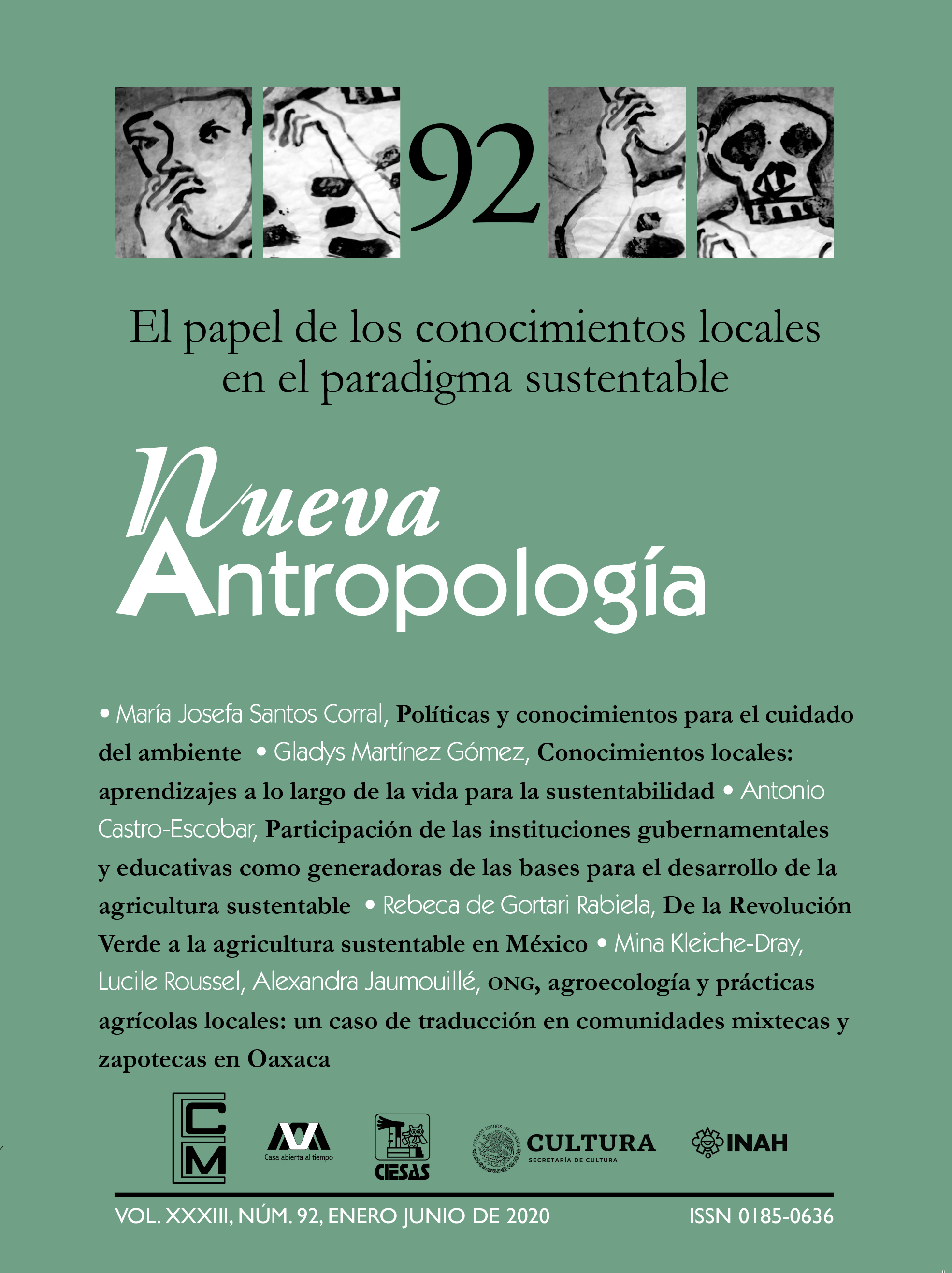Participación de las instituciones gubernamentales y educativas como generadoras de las bases para el desarrollo de la agricultura sustentable
Publicado 2020-10-07
Palabras clave
- Agricultura sostenible,
- Gobierno,
- Conservación,
- Medio ambiente
Cómo citar
Resumen
Las instituciones gubernamentales juegan un papel importante en la agricultura sostenible y en la agricultura en general. El gobierno, a su vez, desempeña un papel relevante para el desarrollo de políticas que promuevan la adopción de prácticas que fomenten la conservación del suelo y la protección del medio ambiente. Las instituciones educativas, de igual modo, fomentan la agricultura sostenible para ayudar al gobierno en el desarrollo de políticas en el agro, y brindan asistencia a los agricultores para que puedan superar los desafíos de la producción. El objetivo de este artículo consiste en describir el papel que juegan las instituciones gubernamentales y educativas en la adopción y promoción de prácticas que fomentan una agricultura que se desarrolle sin intervención o apoyo externo.
Descargas
Referencias
- ALTIERI, Miguel, y Clara I. NICHOLLS (2000), Agroecología. Teoría y práctica para una agricultura sustentable, México, PNUMA, disponible en: http://www.agro.unc.edu.ar/-biblio/AGROECOLOGIA2%5B1%5D. pdf , consultada el 8 de noviembre de 2019.
- ATCHOARENA, David, y Keith HOLMES (2005), "The Role of Agricultural Colleges and Universities in Rural Development and Lifelong Learning in Asia", Asian Journal of Agriculture and Development, vol.2, núms. 1 y 2, pp. 16-24.
- BARBIER, Marc, y Boelie ELZEN (eds.) (2012), System Innovations, Knowledge Regimes and Design Practices towards Transitions for Sustainable Agriculture, París, INRA, disponible en: http://www4.inra.fr/sad_eng/Publications2/Free-e-books/ System-Innovations-for-Sustainable-Agriculture consultada el 8 de noviembre de 2019.
- BREWER, Frank L. (2001), Agricultural Extension Systems: An International Perspective, EUA, Erudition Books.
- CANNARELLA, C., y V. PICCIONI (2003), “Innovation Transfer and Rural SMES", Journal of Central European Agricultur, vol.4, núm. 4, pp.371-388.
- CONSTANCE, Douglas H. (2010), “Sustainable Agriculture in the United States: A Critical Examination of a Contested Process", Sustainability”, núm. 2, pp. 48-72.
- DAVIDSON, J. H. (2002), Sustainable Development and Agriculture in the United States, Washington, D. C., Environmental Law Institute.
- DAS GUPTA, Ashok (2011), “Does Indigenous Knowledge Have Anything to Deal with Sustainable Development?, Antrocom Journal of Anthropology, vol. 7, núm. 1.
- ERVIN, Christine A., y David E. ERVIN (1982), "Factors Affecting the Use of Soil Conservation Practices: Hypotheses, Evidence, and Policy Implications", Land Eco- nomics, vol. 58, núm. 3, pp. 277-292.
- FARMLAND INFORMATION CENTER (2019), “King County Farmland Preservation Program", disponible en: https://www.nal.usda. gov/afsic/farmland-preservation-and- farm-transition , consultada el 8 de noviembre de 2019.
- GAMMON, Katherine (2018), “Technology’s Role in Feeding a Soaring Population Raises This Dilemma", LEAPSMAG disponible en: https://leapsmag.com/ technologys-role-in-feeding-a-soaring- population-raises-this-dilemma/, consultada el 8 de noviembre de 2019.
- HANSON, J. D., J. R HENDRICKSON, y D.ARCHER (2008), “Challenges for Maintaining Sustainable Agricultural Systems in the United States", Renewable Agriculture and Food Systems, vol. 23, núm. 14.
- HARM BENSON, Melinda, y Robin KUNDIS (2014), “The End of Sustainability”, Society and Natural Resources, núm. 27, pp. 777–782.
- KEENEY, D. R. (1990), “Sustainable Agriculture: Definition and Concepts”, Journal of Production Agriculture, núm. 3, pp. 281-285.
- KEENEY, Roman (2013), “The End of the Direct Payment Era in U. S. Farm Policy", Purdue Extension, disponible en: https://www.extension.purdue.edu/ extmedia/EC/EC-774-W.pdf, consulta- da el 8 de noviembre de 2019.
- MCCARTHY, Breda, y Andrea SCHURMANN (2014), “Sustainable Horticulture: Understanding Barriers to the Adoption of Innovation", ANZMAC Proceedings, pp. 1446-1452.
- PIDLISNYUK, Valentina (2010), “Education in Sustainable Development: The Role of Universities", Economic and Environmental Studies, vol. 10, núm. 1, pp. 59-70.
- PLECHERO, Monica (2009), “The Role of Local Universities in Improving Traditional SMES Innovative Performances: The Veneto Region Case", Paper in Innovation Studies, núm. 11.
- ROCHA, Munive M. et al. (2018), “Evaluation of the Impact of Genetically Modified Cotton after 20 Years of Cultivation in Mexico", Frontiers in Bioengineering and Biotechnology, vol. 6, pp. 1-12.
- SANTOS, María Josefa, y Deborah MARTÍNEZ (2015), “Colaboración Estados Unidos México. Universidades y productores haciendo agricultura: los casos de la CSU y la MSU", en Miriam DE LA CRUZ, Omar GARCÍA e Isabel IZQUIERDO (coords.), Los usos sociales del conocimiento, México, Porrúa/Universidad Autónoma del Es- tado de Morelos.
- SARKER, Nazirul Islam (2017), “An Introduction to Agricultural Anthropology: Pathway to Sustainable Agriculture", Journal of Sociology and Anthropology, vol. 1, núm. 1, pp. 47-52.
- SULLIVAN, Preston (2003), “Applying the Principles of Sustainable Farming", disponible en: , consultada el 8 de noviembre de 2019.
- TORRES, Juan (2014), “Contribución del conocimiento y tecnologías tradicionales a la adaptación al cambio climático en las montañas de América Latina", Apuntes de Investigación, núm. 2, pp. 1-10.

